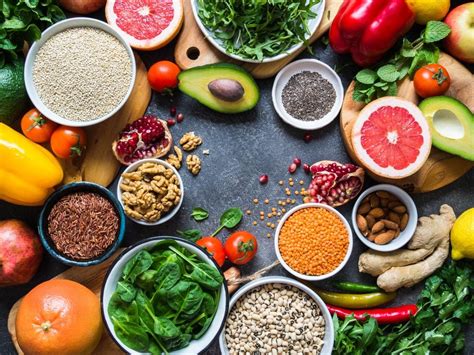Beyond supplements, how can men naturally optimize testosterone for peak performance?

Understanding Testosterone’s Role
Testosterone, often dubbed the ‘male hormone,’ plays a pivotal role in more than just sex drive and muscle mass. Optimal testosterone levels are crucial for energy, mood, cognitive function, bone density, and overall metabolic health. While the market is flooded with testosterone-boosting supplements, many men are seeking sustainable, natural methods to enhance their body’s own production. This article delves into actionable lifestyle changes that can help men naturally optimize their testosterone for peak performance.
The Foundation: Diet and Nutrition
What you eat directly impacts your hormonal balance. To naturally support testosterone production, a balanced and nutrient-dense diet is key.
- Healthy Fats: Cholesterol is a precursor to testosterone, so incorporating healthy fats is essential. Avocados, nuts, seeds, olive oil, and fatty fish (like salmon) provide monounsaturated and polyunsaturated fats vital for hormone synthesis.
- Protein Intake: Adequate protein supports muscle maintenance and growth, which indirectly helps with testosterone levels. Aim for lean protein sources such as chicken, turkey, fish, eggs, and legumes.
- Micronutrients: Zinc and Vitamin D are two critical micronutrients directly linked to testosterone production. Zinc can be found in oysters, red meat, shellfish, and pumpkin seeds. Vitamin D, often called the ‘sunshine vitamin,’ is best obtained through sunlight exposure, but can also be found in fortified foods and fatty fish. Magnesium also plays a significant role in free testosterone levels.
- Limit Sugar and Processed Foods: High sugar intake can lead to insulin resistance, which is detrimental to testosterone levels. Processed foods often lack essential nutrients and contribute to inflammation, further hindering hormone optimization.

Strategic Exercise for Hormonal Harmony
Exercise is a powerful natural testosterone booster, but the type and intensity matter.
- Strength Training: Lifting heavy weights, especially compound movements like squats, deadlifts, bench presses, and overhead presses, has been shown to acutely increase testosterone levels. Aim for 3-4 strength training sessions per week.
- High-Intensity Interval Training (HIIT): Short bursts of intense exercise followed by brief recovery periods can also stimulate testosterone production and improve overall fitness.
- Avoid Overtraining: While exercise is beneficial, excessive or prolonged endurance training (e.g., very long-distance running) can sometimes have the opposite effect, increasing cortisol (a stress hormone) and potentially lowering testosterone. Find a balance that supports recovery.
Prioritize Quality Sleep
Sleep is arguably one of the most underrated factors in hormone regulation. Testosterone production primarily occurs during sleep, particularly during REM sleep. Chronic sleep deprivation can significantly decrease testosterone levels.
- Aim for 7-9 Hours: Most men need 7-9 hours of quality sleep per night. Consistently getting less than this can impair your body’s ability to produce optimal testosterone.
- Improve Sleep Hygiene: Create a dark, quiet, and cool bedroom environment. Avoid screens an hour before bed, and establish a consistent sleep schedule, even on weekends.

Stress Management is Crucial
Chronic stress elevates cortisol levels. Cortisol and testosterone have an inverse relationship; when cortisol goes up, testosterone often goes down. Managing stress is therefore vital for maintaining healthy testosterone.
- Mindfulness and Meditation: Practices like mindfulness meditation, deep breathing exercises, and yoga can significantly reduce stress and lower cortisol levels.
- Leisure and Hobbies: Dedicate time to activities you enjoy that help you relax and de-stress, whether it’s reading, spending time in nature, or pursuing a hobby.
- Social Connection: Strong social bonds and healthy relationships can act as a buffer against stress.
Lifestyle Factors and Environmental Considerations
Beyond the core pillars, several other lifestyle and environmental factors can influence testosterone.
- Maintain a Healthy Weight: Obesity, particularly excess abdominal fat, is strongly linked to lower testosterone. Fat cells contain an enzyme called aromatase, which converts testosterone into estrogen. Losing excess weight can significantly improve testosterone levels.
- Limit Alcohol Consumption: Excessive alcohol intake can disrupt the endocrine system and impair testosterone production. Moderate consumption is generally considered acceptable, but heavy drinking should be avoided.
- Avoid Endocrine Disruptors: Certain chemicals found in plastics (BPA), pesticides, and personal care products can mimic hormones or interfere with their production. Opt for natural alternatives and avoid heating food in plastic containers.

The Holistic Approach to Peak Performance
Optimizing testosterone naturally isn’t about a single magic bullet; it’s about adopting a holistic lifestyle that supports overall health and hormonal balance. By focusing on a nutrient-rich diet, smart exercise, adequate sleep, effective stress management, and mindful lifestyle choices, men can empower their bodies to produce testosterone optimally, leading to enhanced energy, mood, strength, and cognitive function – truly unlocking peak performance without needing to look beyond what nature intended.









